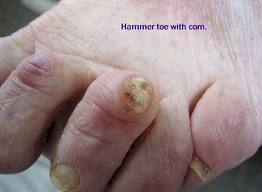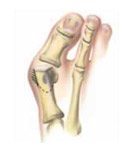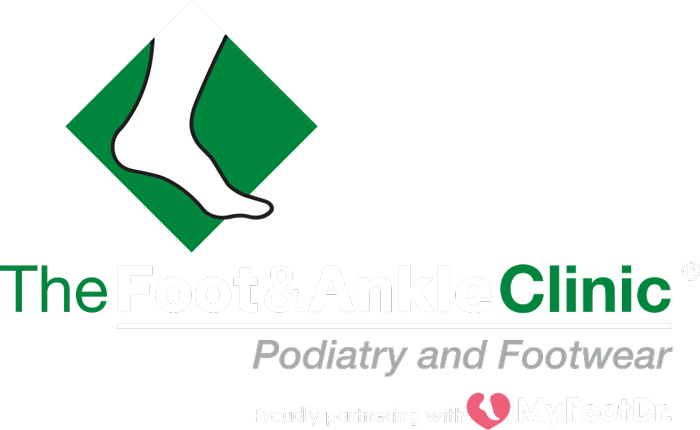Frequently Asked Questions
 Yes, all of The Foot & Ankle Clinic’s practitioners are highly qualified Podiatrists who are registered with the national registration board and are all full members of the Australian Podiatry Association.
Yes, all of The Foot & Ankle Clinic’s practitioners are highly qualified Podiatrists who are registered with the national registration board and are all full members of the Australian Podiatry Association.
In 1977 Chiropody changed to Podiatry, therefore Chiropody (pronounced Kir-opody), as a profession ceased to exist. Although the profession changed, Chiropodists at that time simply took on the name change, and in some cases did not further their education. Some such practitioners still practice as Podiatrists today.
However, since 1977, newly graduating Podiatrists complete a university degree Bachelor of Podiatry to become fully qualified health professionals who deal with the diagnosis, treatment and rehabilitation of medical and surgical conditions of the feet and lower limbs.
All Foot & Ankle Clinic Podiatrists have a Bachelor of Podiatry and regularly attend continuing education workshops to further their knowledge and ensure they are abreast of the latest advancements in Podiatry treatment.
- General Podiatry treatment including removal of corns, calluses, warts and painful ingrown toenails
- Address heel, arch and forefoot pain, knee and lower leg problems
- Assessment of children and postural problems
- Occupational and Sporting Injuries
- Diabetic and Arthritic related problems
- Veterans’ Affairs, TAC, Workcover, Medicare Plus, Medibank Member’s Choice, NDIS and Statewide Aids & Equipment Program
- Orthotic Therapy
- Podiatric Surgery
- Footwear Advice
- Laser treatment for fungal nails
- Extracorporeal Shockwave Therapy for heel pain
 A corn is the thickening of the outer layer of skin. This is usually the result of pressure. Poor or ill-fitting footwear and ill-shaped feet and toes are the major causes. A corn is not a living tissue or infection. Your Podiatrist can often painlessly remove these lesions and help to remove the pressure that has caused this problem by using padding, silipos toe sleeves, shoe inserts and footwear modifications. In extreme cases surgical intervention is required to correct any structural abnormalities (eg. Hammertoes and bunions). Silipos devices can also be worn to relieve irritation.
A corn is the thickening of the outer layer of skin. This is usually the result of pressure. Poor or ill-fitting footwear and ill-shaped feet and toes are the major causes. A corn is not a living tissue or infection. Your Podiatrist can often painlessly remove these lesions and help to remove the pressure that has caused this problem by using padding, silipos toe sleeves, shoe inserts and footwear modifications. In extreme cases surgical intervention is required to correct any structural abnormalities (eg. Hammertoes and bunions). Silipos devices can also be worn to relieve irritation.
 A Bunion is a deformity that usually occurs at the joint of the big toe. The swelling or enlargement is on the inner side of the foot. Bunions may occasionally develop in the bone that joins the little toe to the foot.
A Bunion is a deformity that usually occurs at the joint of the big toe. The swelling or enlargement is on the inner side of the foot. Bunions may occasionally develop in the bone that joins the little toe to the foot.
Bunions usually develop gradually, but continuously, and shoes rubbing against the enlarged bone will cause pain. There may be swelling, redness and deep aching pain associated with the bunion joint.
Bunions often develop from wearing narrow, high heeled shoes with pointed toes, which puts enormous pressure on the front of the foot and causes the foot and toes to rest at unnatural angles. Injury in the joint may also cause a bunion to develop over time. Flat feet, gout and arthritis increase the risk for bunions. Genetics play a factor in 10% to 15% of all bunion problems.
Your Podiatrist can help prevent or reduce problem suffered by bunions by advising the use of correct footwear and shoe inserts to give the foot optimum support and allow for correct foot alignment when walking.
In severe cases where conservative treatment is unlikely to assist we can refer you to our Podiatric Foot and Ankle Surgeon Dr Mark Gilheany for his expert advice.
You can benefit from podiatry if you suffer any of the following:
- Tired, aching and ‘flat’ feet
- Corns and calluses
- Thick and ingrown toenails
- Bunions and hammer toes
- Pigeon toes
- Warts, tinea and foot odour
- Achilles pain and shin splints
- Heel, arch, forefoot and Achilles tendon pain
- Ankle, leg and knee pain
- Sporting or occupational injuries
- Orthotic therapy (including affordable ‘off the shelf’ as well as specialist ‘custom’ options)
- Diabetic and arthritic related problems
- Stress fractures
- Children’s postural problems and growing pains
No, you do not need a referral to see a Podiatrist as Podiatrists are “primary” Allied Health Care providers like Dentists and Physiotherapists. However, in some special circumstances, clients may benefit from a GP referral if they are eligible for TAC, Workcover, Veterans Affairs and other 3rd Party funded services.
In the case of Medicare under special circumstances where you meet the criteria of suffering a “chronic” medical conduction such as Diabetes, your Medical Practitioner may assess your eligibility and refer you for our services via Medicare. This is at your Doctors discretion

